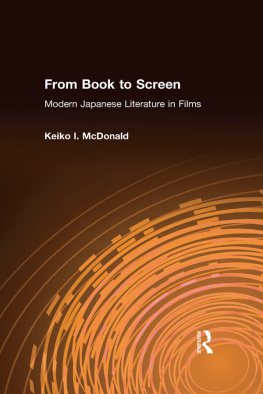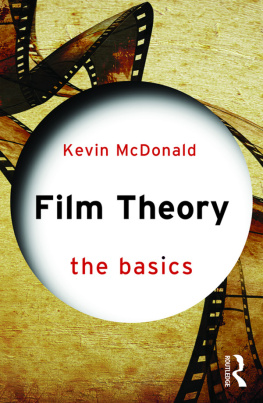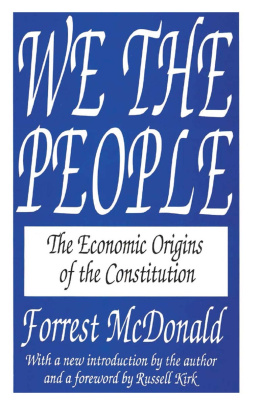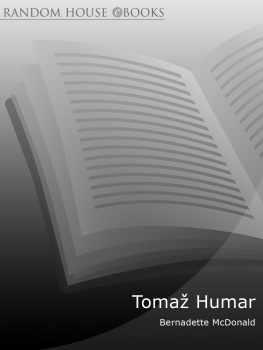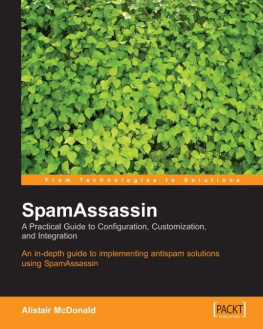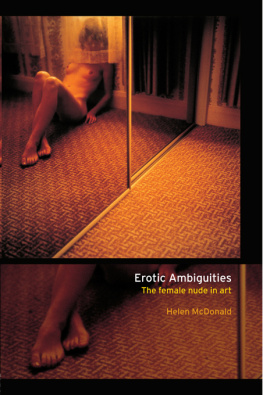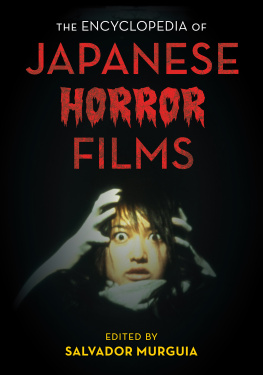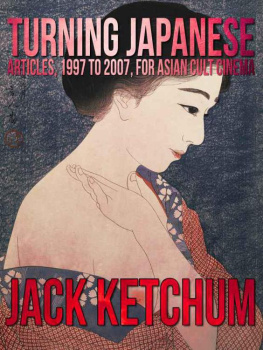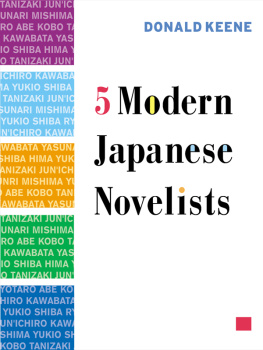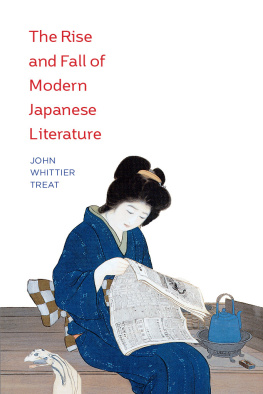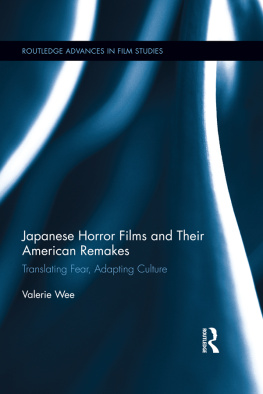
From BOOKTOSCREEN
From BOOKTOSCREEN
Modern Japanese Literature in Film
Keiko I. McDonald



First published 2000 by M.E. Sharpe
Published 2015 by Routledge
2 Park Square, Milton Park, Abingdon, Oxon OX14 4RN
711 Third Avenue, New York, NY 10017, USA
Routledge is an imprint of the Taylor & Francis Group, an informa business
Copyright 2000 Taylor & Francis. All rights reserved.
No part of this book may be reprinted or reproduced or utilised in any form or by any electronic, mechanical, or other means, now known or hereafter invented, including photocopying and recording, or in any information storage or retrieval system, without permission in writing from the publishers.
Notices
No responsibility is assumed by the publisher for any injury and/or damage to persons or property as a matter of products liability, negligence or otherwise, or from any use of operation of any methods, products, instructions or ideas contained in the material herein.
Practitioners and researchers must always rely on their own experience and knowledge in evaluating and using any information, methods, compounds, or experiments described herein. In using such information or methods they should be mindful of their own safety and the safety of others, including parties for whom they have a professional responsibility.
Product or corporate names may be trademarks or registered trademarks, and are used only for identification and explanation without intent to infringe.
Library of Congress Cataloging-in-Publication Data
McDonald, Keiko I.
From book to screen : modern Japanese literature in films / by
Keiko I. McDonald.
p. cm.
Includes bibliographical references and index.
ISBN 0-7656-0387-X (hc. : alk. paper).
ISBN 0-7656-0388-8 (pbk.: alk. paper).
1. Japanese fiction1868 Film and video adaptations.
2. Motion pictures and literatureJapan. I. Title.
PL747.55.M36 1999 99-10679
791.436dc21 CIP
ISBN 13: 9780765603883 (pbk)
ISBN 13: 9780765603876 (hbk)
Contents
This study was made possible by the generous assistance of so many people. I am deeply indebted to them all. I would like to express my sincerest gratitude to Donald Richie, my mentor of two decades and the foremost Western authority on Japanese cinema, who offered me as much professional assistance and warm encouragement as possible.
I offer special thanks to Thomas Rimer, chair of my department at the University of Pittsburgh, who provided much constructive criticism. And I am very grateful to Jan-Paul Malocsay, who read the entire manuscript and made useful comments from the viewpoint of a Western audience. I also owe a great debt of gratitude to David Desser, who offered me valuable suggestions.
Kyoko Sato and Kanako Hayashi from the Kawakita Memorial Film Institute, Masatoshi Oba from the Film Center of the Tokyo National Museum of Art, and Kiyotaka Moriwaki from the Kyoto Cultural Museum were wonderfully accommodating by arranging private screenings of a great number of films.
I would also like to thank the Kawakita Memorial Film Institute, the Shochiku Company, and the Toho Company for permitting me to reprint stills.
Research work for this book, which involved a number of trips to Japan, was supported by generous research grants from the Japan-U.S. Education Commission, the Japan Iron and Steel Federation, the Toshiba International Foundation, and the Asian Studies Program of the University of Pittsburgh. To all these organizations, I am truly grateful.
Finally, my special thanks go to the Richard D. and Mary Jane Edwards Endowed Publication Fund.
Japanese film, from the outset, tried to enhance its artistic quality, resorting to literature, as if the new rich were anxious to wed aristocracy. Under the name of Film Version of Great Literary Work, it drew sources from works by master writersold and newsuch as Akinari Ueda, Roka Tokutomi and Soseki Natsume. They were used to attract film-goers just like decoys.
The anonymous critics view seems slightly disparaging, yet it does describe the essential character of Japanese cinemas relationship to literature. Setting aside the notion of decoying, one could speak of an entirely new art form having to flourish in the shade of a very old one. It could well be that of all the worlds cinemas, the Japanese is unique in its closeness, early and late, to the nations literature.
This receptivity to literature ranged back and forth in time, making use of sources from the very old to the brand new. One could say there was a range up and down as well. Highbrow, lowbrow, even no-browall could apply in the climate of superabundant energy that quickly came to be characteristic of this new art form. It is not surprising, therefore, to find that the first word used for a film derived from an authored work was respectable enough: bungei-eiga, literally film from literature.
Cinema, however, quickly set about defining and redefining its ways and meansas literature always has, though not so much on the doublequick. By the mid-1930s, bungei-eiga was used more narrowly to indicate a connection with a literary worka work whose status in the West would identify it as belonging to belles lettres.
Even so (and long before the age of television), Japanese cinema remained notably inclusive. Many works of popular entertainment found their way into films. A study of that relationship would be a book in itself, rather than the book at hand.
My study concentrates on films related to texts that are self-consciously literary and modern as well. The Japanese word for them is junbungaku-sakuhin (literally, works of pure literature). Modern in this context refers to works written after the Meiji era, that is, after 1868. That year is widely used as a convenient watershed for many aspects of Japanese history and culture, whose ordeal of Westernization is seen as beginning around that time.
I have tried to put my subject in perspective and treat it comprehensively, even as considerations of time and space forced me to limit the number of works discussed. My hope is that the format of this book will serve those aims and, as well, equip readers to study more such works on their own.
The first part is an overview, offering historical and cultural background for understanding some distinctive features of the alliance between junbungaku-sakuhin and film. A vast amount of relevant material was generated in the first eight decades of cinema, so again, I have been rigorously selective. I have dealt with those decades piecemeal, looking for intervals in which filmmakers relied most heavily on literary works for enriching and developing cinematic art.
The first such interval is 190720, a time of special affinity with shimpa, the drama or, often, melodrama, of middle-class domestic life in a contemporary setting. Here we see that prototypical kinship between stage and screen take shape and then gradually yield to a different collaboration between textual material and its cinematic transformation.
Next page
